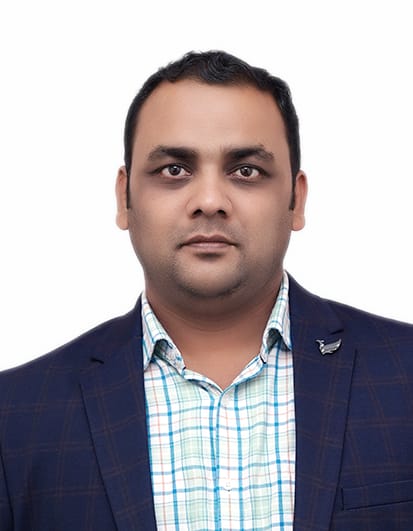SusTech Talk Feb 2025 – Plastic Pollution and its Sustainable Management Utilizing Green Economy Strategies
“Plastic Pollution and its Sustainable Management Utilizing Green Economy Strategies”
with Alok Prasad Das, Department of Life Sciences, Rama Devi Women’s University, Odisha, India
Date/Time: Tuesday, February 25, 2025; 6:00-7:00 pm PST, 9-10 pm EST, 7:30-8:30 am IST
Abstract:
The Earth’s biosphere represents a natural ecosystem characterized by intrinsic self-remediation mechanisms; nonetheless, the contemporary tempo of resource extraction and the associated depletion of natural resources underscore alarming detrimental ecological trends.
The life cycle of plastic materials presently poses a significant threat to planetary boundaries, suggesting that pollution resulting from plastics may surpass a critical threshold, thereby engendering enduring global ramifications for climate, ecosystems, and levels of biodiversity. The majority of the compounds that confer distinctive properties to plastics, including hardness, durability, malleability, color, and plasticity, are emitted into the atmosphere during incineration practices. This process releases a plethora of hazardous substances into the air, adversely affecting human skin and visual health, increasing the likelihood of cancer and cardiovascular diseases, provoking headaches and nausea, and potentially inflicting damage to neurological and reproductive systems.
The pervasive environmental challenges necessitate the adoption of greener technologies that uphold the integrity of global environmental issues, irrespective of their complexity and the solutions required for implementation. The integration of waste management with environmental sustainability and economic development constitutes a fundamental milestone within the framework of a circular economy. There exists an urgent imperative for developing nations to advance towards a circular economy in order to fulfil their sustainable development objectives. To genuinely progress towards a circular economy, structural enhancements and the innovation of novel materials recovery methodologies are essential. Greener technologies are regarded as an innovative paradigm that facilitates economic advancement while simultaneously ensuring the preservation of environmental sustainability.
Date and Time
Location
Hosts
Registration
- Date: 25 Feb 2025
- Time: 06:00 PM to 07:00 PM
- All times are (UTC-08:00) Pacific Time (US & Canada)
-
 Add Event to Calendar
Add Event to Calendar
- Starts 08 February 2025 06:00 AM
- Ends 25 February 2025 12:00 PM
- All times are (UTC-08:00) Pacific Time (US & Canada)
- No Admission Charge
Speakers
Alok Prasad Das of Rama Devi Women’s University
Plastic Pollution and its Sustainable Management Utilizing Green Economy Strategies
The Earth’s biosphere represents a natural ecosystem characterized by intrinsic self-remediation mechanisms; nonetheless, the contemporary tempo of resource extraction and the associated depletion of natural resources underscore alarming detrimental ecological trends.
The life cycle of plastic materials presently poses a significant threat to planetary boundaries, suggesting that pollution resulting from plastics may surpass a critical threshold, thereby engendering enduring global ramifications for climate, ecosystems, and levels of biodiversity. The majority of the compounds that confer distinctive properties to plastics, including hardness, durability, malleability, color, and plasticity, are emitted into the atmosphere during incineration practices. This process releases a plethora of hazardous substances into the air, adversely affecting human skin and visual health, increasing the likelihood of cancer and cardiovascular diseases, provoking headaches and nausea, and potentially inflicting damage to neurological and reproductive systems.
Industrial plastics are produced by a diverse array of sectors, including demolition and construction firms, electrical and electronics industries, automotive manufacturers, packaging enterprises, as well as small and medium-sized businesses. Poorly managed plastic waste can obstruct drainage systems and waterways, leading to flood conditions, proliferation of mosquito breeding sites, and the emergence of flies that can transmit diseases and pests. The extensive proliferation of plastic pollution exerts a deleterious influence on ecological systems and the broader ecosystem. Single-use plastic products, such as polybags, dining utensils, and packaging materials, are projected to constitute approximately 50% of the total plastic waste, ultimately culminating in landfills or the marine environment.
The repercussions of this plastic pollution within both terrestrial and marine contexts will exert a significantly amplified impact on the overall ecosystem due to unsustainable patterns of production, utilization, consumption, post-use disposal, collection, and subsequent processing. In contemporary scenarios, it is imperative to implement optimal pollution prevention strategies in instances where risks can be effectively managed.
The pervasive environmental challenges necessitate the adoption of greener technologies that uphold the integrity of global environmental issues, irrespective of their complexity and the solutions required for implementation. The integration of waste management with environmental sustainability and economic development constitutes a fundamental milestone within the framework of a circular economy. There exists an urgent imperative for developing nations to advance towards a circular economy in order to fulfil their sustainable development objectives. To genuinely progress towards a circular economy, structural enhancements and the innovation of novel materials recovery methodologies are essential. Greener technologies are regarded as an innovative paradigm that facilitates economic advancement while simultaneously ensuring the preservation of environmental sustainability.
Biography:

He is an academician, researcher and author of journal articles, several books, and book chapters. He is the Editorial member of several reputed journals. With his 15 years of research experience, Dr. Das has been supported through various research grants from Department of Science and Technology and Department of Biotechnology, Ministry of Mines, Government of India. His research and innovation work, done in national and international collaborations, has appeared in over 120 of publications; and his contributions have been recognized by several awards.
His area of expertise includes Biological Wastewater treatment, Bioremediation based bioleaching of mining pollutants, Bioconversion of environmental waste to vale based products, Bioremediation of Microplastics and Microfiber Pollutants, Geomicrobiology of extreme habitats. He has guided several post graduate and Ph.D. scholars. His current Google Scholar: Citations is 5510 and h-index 42. Dr. Das is enlisted in world’s top 2% influential scientist as per the Stanford University list 2023 and 2024.
Address:Odisha, India
Agenda
6:00 pm Introduction of Speaker
7:00 pm Adjourn
